The Bogotá grass mouse or Bogotá akodont, is a species of rodent in the family Cricetidae. It is found in the Andes eastern and central Colombia and northwestern Venezuela. Alavarado-Serrano and D'Elía (2013) have assigned the species to a new genus, Neomicroxus along with Neomicroxus latebricola.
The Ecuadorian grass mouse is a species of rodent in the family Cricetidae. It is found only in Ecuador.
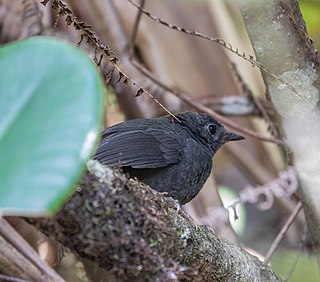
The brown-rumped tapaculo is a species of bird in the family Rhinocryptidae. It is endemic to Colombia.

Gömmaren Nature Reserve is a nature reserve centred on Lake Gömmaren in the north of Huddinge Municipality south of central Stockholm, Sweden. The reserve was created in 1995.

Hypnaceae is a large family of moss with broad worldwide occurrence in the class Bryopsida, subclass Bryidae and order Hypnales. Genera include Hypnum, Phyllodon, and Taxiphyllum.
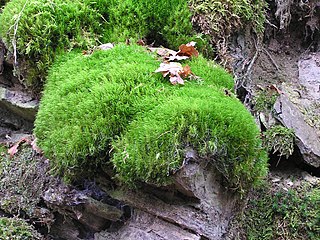
Dicranaceae is a family of haplolepideous mosses (Dicranidae) in class Bryopsida. Species within this family are dioicous. Genera in this family include Dicranum, Dicranoloma, and Mitrobryum.
The black brotula, also known as the black widow, is a species of viviparous brotula found in reefs of the western Atlantic Ocean where it occurs from the Bahamas in the north southwards to Brazil. This species grows to a length of 7.5 centimetres (3.0 in) TL. This species is the only known member of its genus.

Grimmiaceae is a family of mosses in the order Grimmiales.
Telphusa latebricola is a moth of the family Gelechiidae. It is found on the British Virgin Islands.
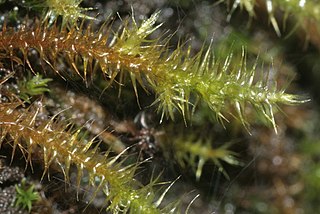
Amblystegiaceae is a family of mosses. It includes 20 to 30 genera with a total of up to 150 species. They occur nearly worldwide, growing in tropical, temperate, and subpolar regions.
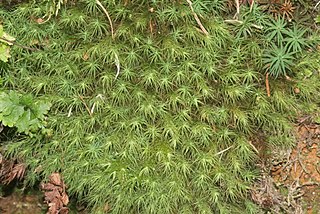
Bartramiales is an order of moss.
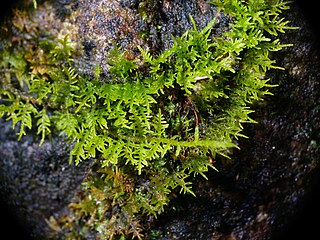
Thuidiaceae is a family of mosses within the order Hypnales. It includes many genera but the classification may need to be refined. The core genera are Thuidium, Thuidiopsis, Pelekium, Aequatoriella, Abietinella, Rauiella, Haplocladium and Actinothuidium form a clade but others currently placed in the family may belong elsewhere.
Bembidion latebricola is a species of ground beetle in the family Carabidae. It is found in North America.

Rhabdoweisiaceae is a family of haplolepideous mosses (Dicranidae) in the order Dicranales. It consists of 16 genera.

Plagiothecium is a genus of moss belonging to the family Plagiotheciaceae. It has a cosmopolitan distribution.

Plagiothecium undulatum is a species of moss belonging to the family Plagiotheciaceae.
Bartramiaceae is a family of mosses belonging to the order Bartramiales.
Leskeaceae is a family of mosses belonging to the order Hypnales.

Plagiotheciaceae is a family of mosses from the order Hypnales. It is found almost nearly worldwide, including Antarctica. Located primarily in temperate latitudes and at higher elevations in the tropics.










